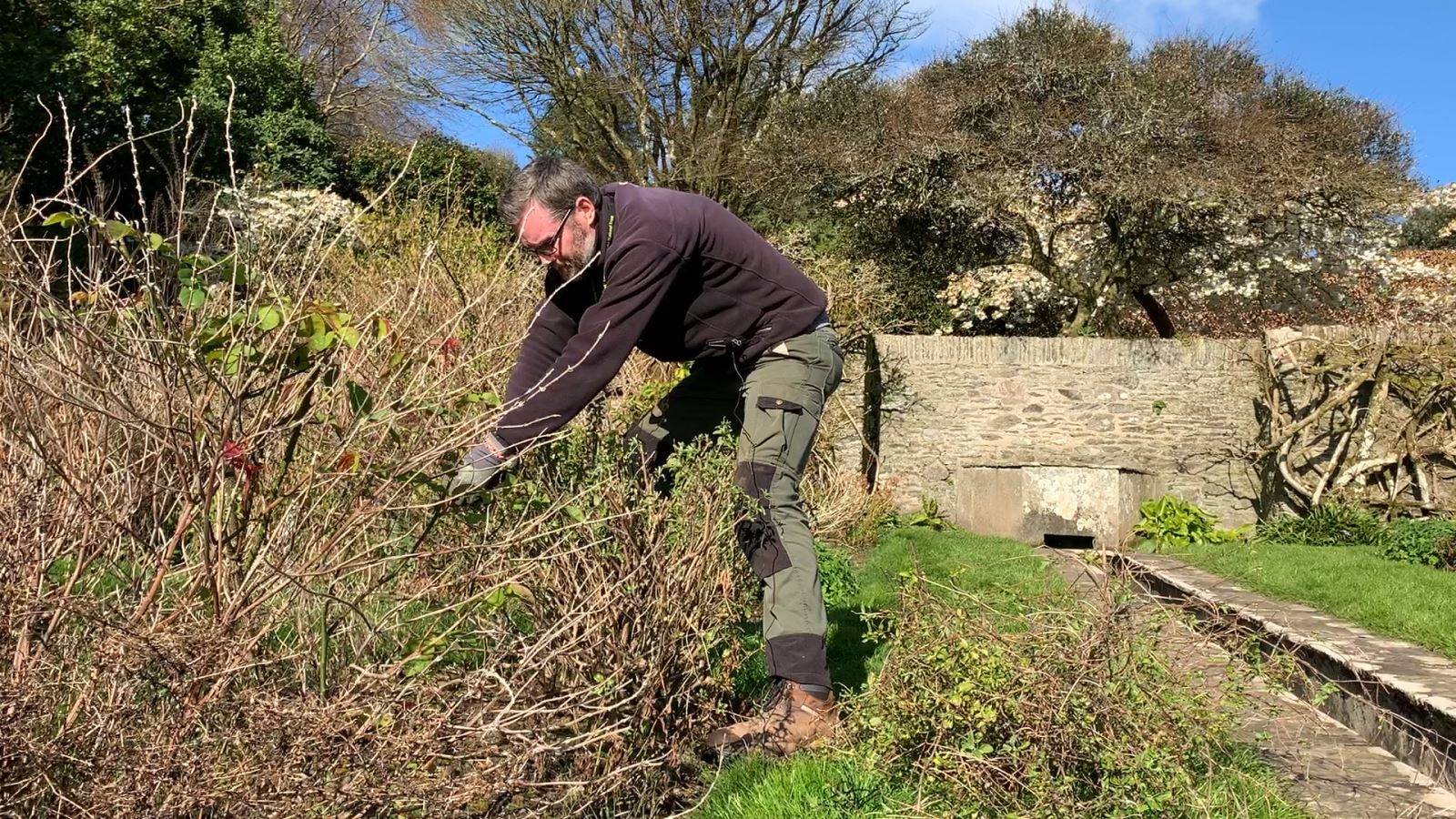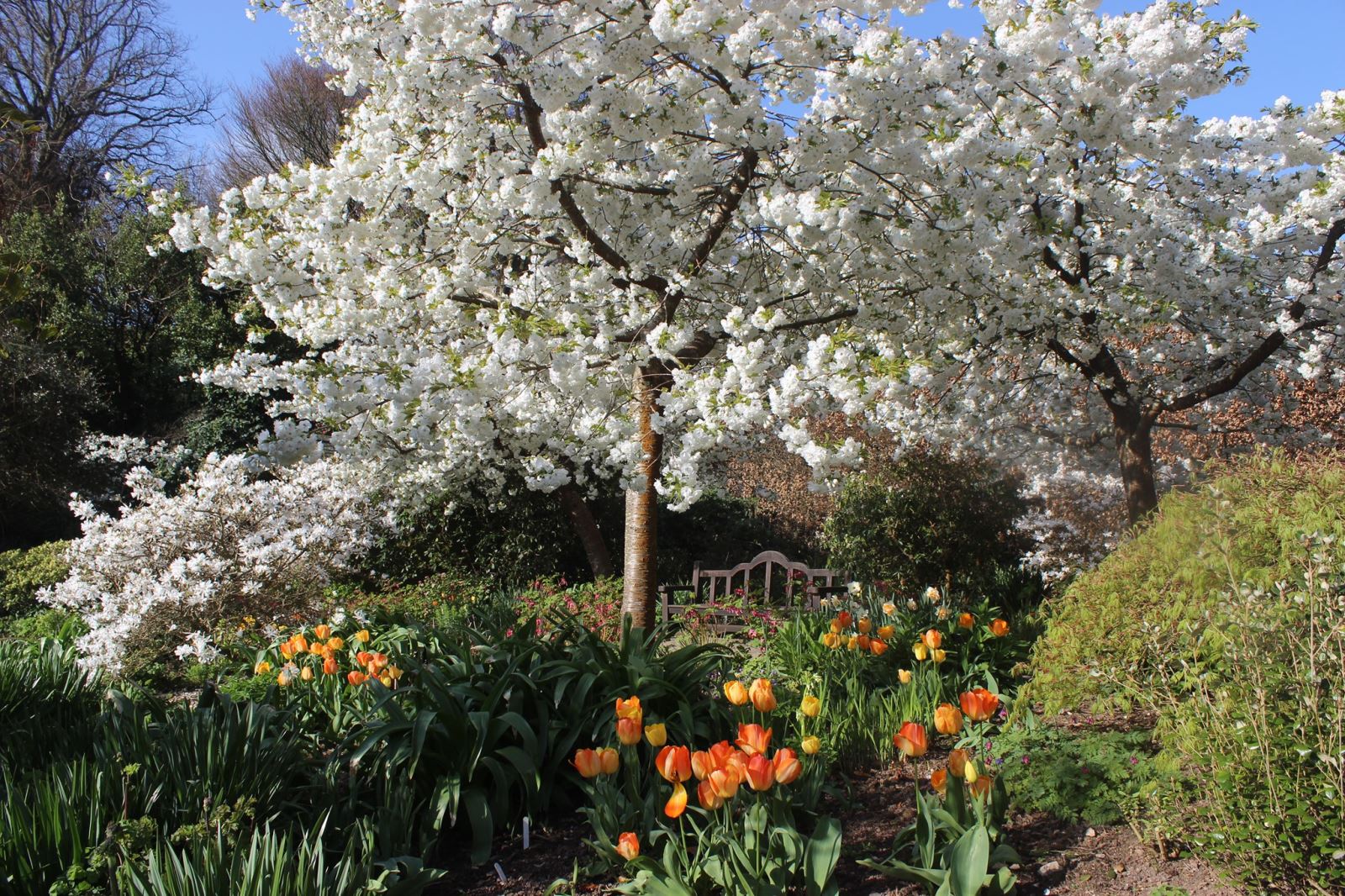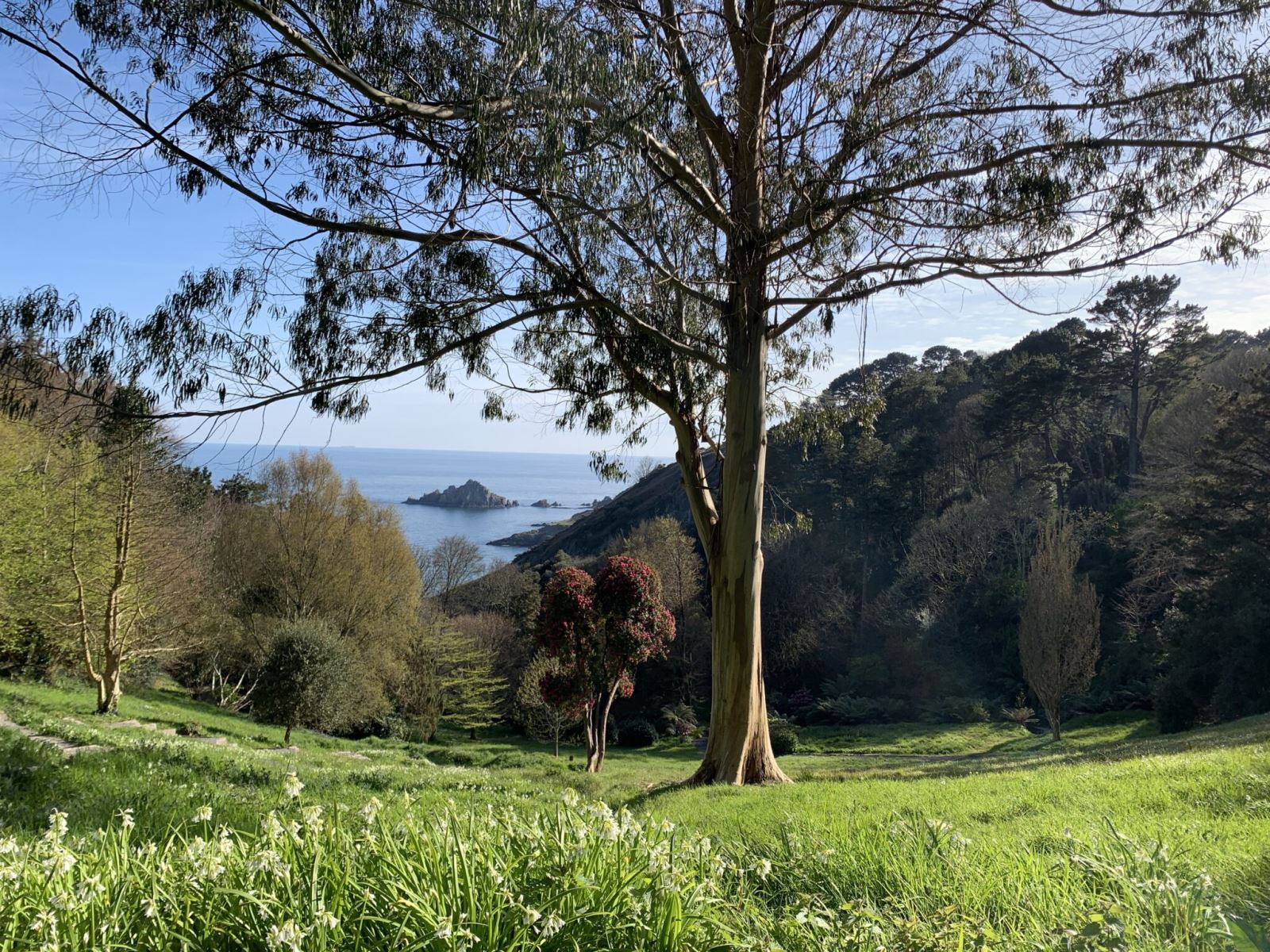.png)
Author
We’re continuing on our journey to discover the most unusual jobs around the English Riviera with English Riviera Days Out, and we’ve been speaking to National Trust gardeners who care for the most well-known gardens around the English Riviera. Today we’re meeting James: Senior Gardener at Coleton Fishacre.
How did you get into your role?
Having worked in horticulture since 2007, I decided to increase my horticultural knowledge by spending one day a week volunteering with the garden team at Coleton Fishacre in 2015. I enjoyed it so much that when an opportunity arose to apply for a permanent gardening job, I grabbed it with both hands!
What is the daily routine of a gardener at the National Trust?
At the start of every day, I sit down with the garden team and we discuss the plans for the day. If we take too long over this, Clarence the garden cat is very vocal at reminding us that our priorities should be feeding him! The day ends with us checking the plants growing in the glasshouse before heading home.

What do you enjoy about working at Coleton Fishacre?
Gardening is my hobby and Coleton Fishacre is my favourite garden. I literally couldn’t wish for a better job. It is such a special garden, with spectacular views out to sea. Designed in the arts & crafts style, the house and garden are subtly integrated into the wider landscape. The mild micro-climate enables us to grow an incredibly wide range of plants. The centrally located stream links the formal herbaceous borders in the upper garden to the lush sub-tropical planting lower down in the valley.
At Coleton Fishacre we grow many unusual plants which are native to the southern hemisphere and would be too tender for most regions of the UK. King proteas (Protea cynaroides) and the bird of paradise (Strelitzia reginae) flower are two of those.
I like working in the tourism sector – being able to connect with people and hopefully have a positive impact on their visit is very rewarding. It also reminds me how lucky I am to be living and working in such a beautiful part of the country.
.jpg)
What’s your favourite task as a gardener?
I love the variety of jobs that being a gardener in a historic garden offers. The importance of conserving these special places cannot be underestimated, both in terms of places to visit for future generations, but also as important wildlife habitats. Horticulture is such a diverse career and the seasonal variation in tasks that we undertake keeps it enjoyable. At present, we are preparing borders for spring planting. Over the winter months, we have grown approximately 1,500 plants from seed or cuttings which will take some planting!
What is your favourite area of Coleton Fishacre?
My favourite part of the garden here at Coleton Fishacre is, ironically, the least ‘gardened’ area. At Scout Point, you emerge from the woodland shelterbelt and are presented with incredible views down the coast towards Start Point. It’s a fantastic reminder that as much as we try to manipulate these landscapes to create beauty, Mother Nature does it effortlessly better.

Why are volunteers important to Coleton Fishacre?
We have a great team of volunteers who help with the maintenance and development of the garden. Without their assistance it would be impossible for us to look after the gardens and maintain the high standards that we aspire to and we are hugely grateful for the time that they donate to the garden. As well as the gardening, coffee and cake is traditionally an integral part of the gardening day and an opportunity to reflect on the work that we’ve collectively carried out.
As a National Trust gardener, what’s your top tips for creating a successful garden?
When choosing new plants for your garden, always consider the ‘right plant, right place’ mantra. Read the plant label before buying as this will always include useful growing advice. Specifically look for sunlight and soil requirements and consider whether this matches the area of the garden that you are planning on siting the plant. If they don’t, then the likelihood is that the plant will struggle.

Do you have any tips for wildlife-friendly gardening?
One of the simplest ways to help wildlife is to delay tidying your herbaceous borders until spring. Here at Coleton Fishacre we do this for two reasons. Firstly, the leaf litter, old stems and general debris provide a great place for hibernating insects. We have particularly noticed the increase in the ladybird populations at Coleton Fishacre, which helps us to control any aphid infestations. The second benefit is that tender perennials (such as penstemon and salvias) are afforded some extra protection from the winter cold. Embrace untidiness and delay cutting back until the new season’s growth has started and the risk of frost has passed.
Do you have any tips for those aspiring to work as a National Trust gardener?
If possible, volunteer. It’s a great way to understand what is involved with being a gardener in a public garden and, by donating your time, it shows real commitment.
Study. There are many routes into horticulture. A good start would be looking at the industry standard courses and apprenticeships offered by the RHS.

Related

At the country home of the D’Oyly Carte family you can travel back in time to the Jazz Age. This most evocative of country homes was built in the Arts & Crafts style in the late 1920’s and is imbued with Art Deco elegance. A light, joyful atmosphere fills the rooms, and music plays, echoing the family’s Gilbert and Sullivan connections. You can get an insight into 1920s life ‘upstairs and downstairs’ from the glamorous Saloon to the airy servants’ rooms. In the RHS accredited garden viewpoints give enticing glimpses out to sea, and paths weave through glades past tranquil ponds, as tender plants from the Mediterranean, South Africa and New Zealand thrive in the moist and sheltered valley.

Agatha Christie described Greenway as “the loveliest place in the world”. It was here that she had her holiday home, on the banks of the River Dart. With a long history dating back to the 1490s, the house still retains features added by all generations of occupying families. Now cared for by the National Trust, the property offers visitors an extraordinary glimpse into the private life of the Queen of Crime and her family. Greenway is a magical place to explore, with its rich historical interior and the romantic mystery of its garden. Agatha Christie set two of her novels here, both of which feature on the Agatha Christie Literary Trail: Five Little Pigs and Dead Man’s Folly.

Did you know that there are a number of National Trust holiday cottages in the English Riviera? Located near Coleton Fishacre and Greenway, where better to spend some quality time than this breathtaking location, with exclusive access to both gardens after hours? With the majority of them dog friendly, you can bring the whole family for an unforgettable holiday.
Comments
Comments are disabled for this post.







